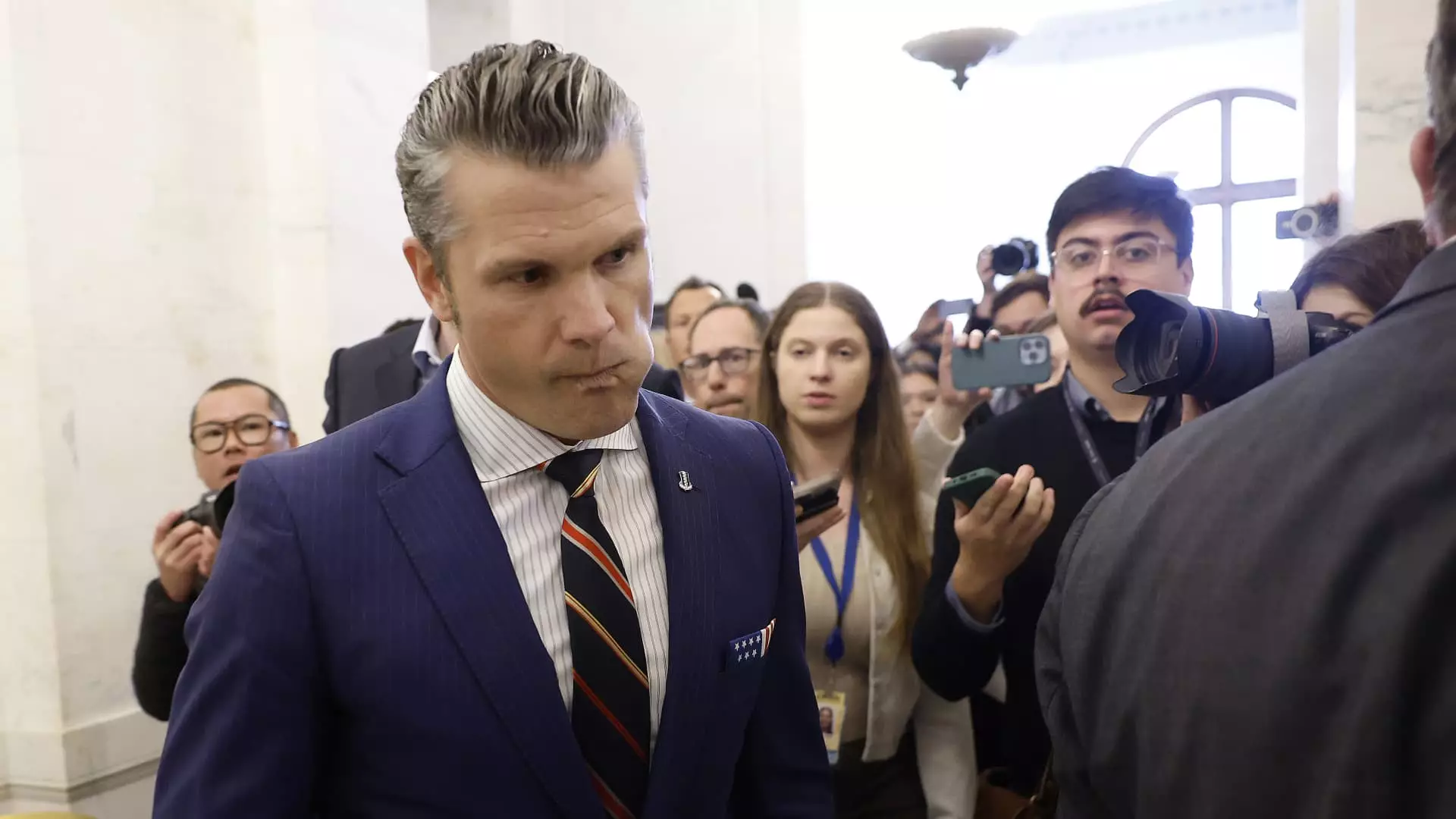Pete Hegseth, a figure at the center of various controversies, was initially chosen by President-elect Donald Trump to serve as the head of the Pentagon. However, recent allegations of misconduct, including alcohol abuse and inappropriate behavior, have resurfaced, raising concerns about his suitability for the role. A detailed report by *The New Yorker* sheds light on these allegations, revealing troubling details from Hegseth’s tenure at two veterans’ nonprofit organizations.
The revelations began with a whistleblower complaint that originated in 2015. According to this report, Hegseth reportedly engaged in excessive drinking while serving as the president of Concerned Veterans for America (CVA). Eyewitness accounts suggest that Hegseth’s behavior during organizational events was so erratic that colleagues often had to assist him, including instances where he needed to be carried out due to drunkenness. One particularly alarming incident cited in the report involved Hegseth attempting to join dancers at a strip club, an act underscored by the serious implications of professionalism and decorum expected from someone in his position.
Moreover, the whistleblower account included details of inappropriate conduct towards female staff members. Allegations indicated that Hegseth and several other members of the management team engaged in making toxic distinctions between female colleagues, labeling them as either “party girls” or “not party girls.” Such behavior, if substantiated, highlights significant issues related to workplace culture and the treatment of women within the organization—a culture that should foster respect and equality.
Management Problems: A Pattern of Misconduct
Hegseth’s time at CVA was marred by claims of mismanagement and alcohol-related issues that ultimately led to his resignation in 2016. The fallout from these allegations tarnished his reputation and raised questions about his leadership abilities. Similar patterns emerged from his earlier role with Vets for Freedom (VFF), where he reportedly led the organization into severe financial difficulties. By the end of 2008, VFF could not meet its financial obligations, prompting donors to intervene and initiate a coup to wrest control away from Hegseth. The deterioration of financial health within both organizations suggests a troubling trend in Hegseth’s management style, further complicating his candidacy for a high-stakes governmental position.
Apart from the allegations of misconduct within nonprofit organizations, Hegseth’s personal life has also come under scrutiny. An investigation by police in Monterey, California, related to an alleged sexual assault during a Republican women’s convention, brought additional pressures to his already beleaguered reputation. Despite being cleared of any criminal charges, the incident casts a shadow over his character and raises questions about his judgment.
The fallout of this incident unfolded during a time when Hegseth was involved in a contentious divorce from his second wife, further complicating the narrative of his personal life. Notably, his current wife gave birth to a child conceived during an extramarital affair, adding layers of complexity to Hegseth’s private affairs. The decision to settle with the woman involved in the alleged assault, albeit with a denial of wrongdoing, reflects the challenges posed by public perception in the wake of the #MeToo movement—a time when accountability for male misconduct has become increasingly scrutinized.
As Hegseth’s nomination to the Department of Defense faces mounting opposition, the implications of these revelations on his future remain uncertain. He has received vocal support from various corners of the political landscape, yet opponents are quick to leverage the reported misconduct to challenge his appointment. The overarching question now is whether the formal allegations will impact his confirmation process and how they reflect on the Trump administration’s larger approach to governing.
Hegseth’s journey illustrates the precarious balance between public service and personal accountability. As the political landscape evolves, scrutiny regarding the actions and character of potential leaders intensifies. The unfolding controversies surrounding Pete Hegseth serve as a significant case study of how personal conduct and professional expectations intersect in the realm of public service—a reminder of the high stakes attached to leadership in an increasingly critical public sphere.


Leave a Reply